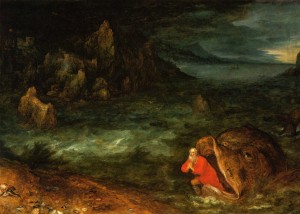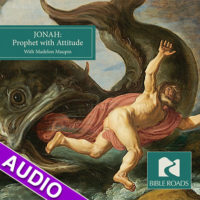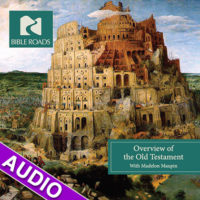Last week’s blog in this three part series was the world OF the text. Now is part two: the world BEHIND the text (concerns, circumstances and experiences of individuals).
One way to initially unpack a Biblical text is to find out when it was written– providing often-significant context for why this story, told at this time.
Jonah is written quite late in Israel’s history, around 400 BCE, over a century after their return from Babylonian captivity. Yet the story centers on a much earlier time when the city of Nineveh needs to be saved. Founded on the east bank of the Tigris River originally by the first Babylonian Empire, the city was rebuilt as the capital of the Assyrian Empire around 705 BCE.
Before Nineveh was destroyed in 612 BCE (by a combined force of Babylonians and Medes), they had a long history of cruelty, especially toward their conquered enemy, Israel. Centuries before, in 922 BCE, Israel’s citizens were defeated and deported, forced into an exile where all they loved was at risk of being lost: their culture, history, language and religion.
The result? Assyria became Israel’s most hated and feared oppressor, known for violence and cruelty in its capital. Israel prayed that God’s wrath would consume its enemies, especially the Ninevites.
Enter Jonah, a dedicated Jew convinced the Ninevites should not only not be saved, but God should punish them for their inflicted misery. After all, wasn’t God supposed to avenge Israel’s enemies, a theological view entertained for centuries?
Yet by 400 BCE, Nineveh’s greatness was long over. So what was the little book’s purpose? To stop the growing nationalistic and racial attitudes developing after the Babylonian Exile, especially since the Jews had just passed a law that they alone could stay in Jerusalem.
I think of Jonah as a kind of Old Testament “Archie Bunker”, a narrow-minded prophet given the opportunity to think differently about a bitter enemy, shedding prejudice and bigotry. But first, he had to respond to God’s call.
Consider the sympathetic portrayal of the sailors and Ninevites, both heathen groups willing to acknowledge God and repent of sins. Didn’t this indicate they weren’t nearly the pagans Jonah (i.e. the Jews) assumed them to be?
The Book of Jonah teaches us through negative example. Told as the only Old Testament parable, it delivers its point through symbolism. It becomes the reader’s task to figure out, for example,
- Does Jonah stand for something larger, such as Jews directed to share God’s word beyond their borders?
- Is Nineveh a whale that had swallowed Israel?
- Is King Cyrus of Persia the whale willing to spit you up to live again?
As in any parable, the reader will draw his or her own conclusions. And since parables are timeless, we’ll explore in the third and final column, how to bring Jonah’s oh-so-contemporary lessons forward. Until then, happy pondering!




